
Balikpapan: The Jewel of East Borneo
Balikpapan, nestled on the eastern coast of Borneo, is a vibrant city known for its bustling port, pristine beaches, and lush green landscapes. As a key gateway to East Borneo, Balikpapan offers a unique blend of urban conveniences and natural beauty, making it an intriguing destination for tourists. One of the city's highlights is its beautiful coastline. Kemala Beach and Manggar Beach are perfect spots to relax and enjoy the tropical climate. The crystal-clear waters and soft, sandy shores provide ideal conditions for swimming, sunbathing, and various water sports. Nearby, the Mangrove Center offers a chance to explore the rich biodiversity of the mangrove forests, home to numerous bird species and other wildlife. Balikpapan is also renowned for its thriving wildlife sanctuaries. The Samboja Lestari Orangutan Sanctuary is a must-visit, where you can see rescued orangutans and sun bears in their natural habitat. This conservation effort not only provides a safe haven for these animals but also educates visitors on the importance of wildlife preservation. For those interested in local culture, Balikpapan offers a glimpse into the traditional life of the Dayak people. Visit the Balikpapan Cultural Center to learn about their customs, crafts, and dances. The city's markets, such as Balikpapan Plaza and Kebun Sayur Market, provide an authentic shopping experience, offering everything from local handicrafts to delicious street food. Balikpapan's culinary scene is diverse and flavorful. Fresh seafood is a staple, with many restaurants serving dishes that highlight the catch of the day. Don't miss trying the local specialty, 'kepiting soka' (soft-shell crab), which is a delicacy you won't forget. With its mix of natural wonders, cultural experiences, and modern amenities, Balikpapan is a destination that caters to all types of travelers. Whether you're an adventure seeker, a culture enthusiast, or someone looking to unwind, Balikpapan has something for everyone.
Local tips in Balikpapan
- Visit Kemala Beach early in the morning to avoid the crowds and enjoy a peaceful sunrise.
- Wear comfortable walking shoes for exploring the mangrove forests and wildlife sanctuaries.
- Try the local seafood at traditional ‘warungs’ (small eateries) for an authentic dining experience.
- Bring insect repellent, especially when visiting the mangrove forests and wildlife areas.
- Respect local customs and dress modestly when visiting cultural sites.
Balikpapan: The Jewel of East Borneo
Balikpapan, nestled on the eastern coast of Borneo, is a vibrant city known for its bustling port, pristine beaches, and lush green landscapes. As a key gateway to East Borneo, Balikpapan offers a unique blend of urban conveniences and natural beauty, making it an intriguing destination for tourists. One of the city's highlights is its beautiful coastline. Kemala Beach and Manggar Beach are perfect spots to relax and enjoy the tropical climate. The crystal-clear waters and soft, sandy shores provide ideal conditions for swimming, sunbathing, and various water sports. Nearby, the Mangrove Center offers a chance to explore the rich biodiversity of the mangrove forests, home to numerous bird species and other wildlife. Balikpapan is also renowned for its thriving wildlife sanctuaries. The Samboja Lestari Orangutan Sanctuary is a must-visit, where you can see rescued orangutans and sun bears in their natural habitat. This conservation effort not only provides a safe haven for these animals but also educates visitors on the importance of wildlife preservation. For those interested in local culture, Balikpapan offers a glimpse into the traditional life of the Dayak people. Visit the Balikpapan Cultural Center to learn about their customs, crafts, and dances. The city's markets, such as Balikpapan Plaza and Kebun Sayur Market, provide an authentic shopping experience, offering everything from local handicrafts to delicious street food. Balikpapan's culinary scene is diverse and flavorful. Fresh seafood is a staple, with many restaurants serving dishes that highlight the catch of the day. Don't miss trying the local specialty, 'kepiting soka' (soft-shell crab), which is a delicacy you won't forget. With its mix of natural wonders, cultural experiences, and modern amenities, Balikpapan is a destination that caters to all types of travelers. Whether you're an adventure seeker, a culture enthusiast, or someone looking to unwind, Balikpapan has something for everyone.
When is the best time to go to Balikpapan?
Iconic landmarks you can’t miss
eWalk
Explore eWalk, Balikpapan's vibrant shopping mall, offering a blend of retail, dining, and entertainment experiences in East Kalimantan.
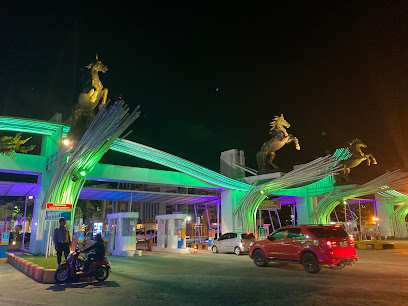
Sultan Aji Muhammad Sulaiman Sepinggan International Airport
Discover the allure of East Kalimantan as you arrive at Sultan Aji Muhammad Sulaiman Sepinggan International Airport, your gateway to Indonesia's natural wonders.
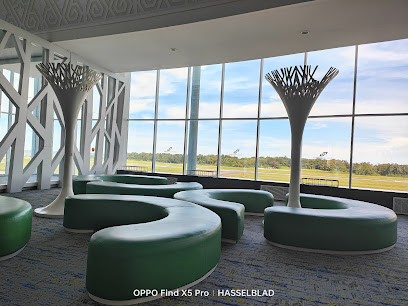
Melawai Beach
Discover the tranquil beauty of Melawai Beach in Balikpapan, East Kalimantan. A perfect destination for relaxation, adventure, and breathtaking sunsets.
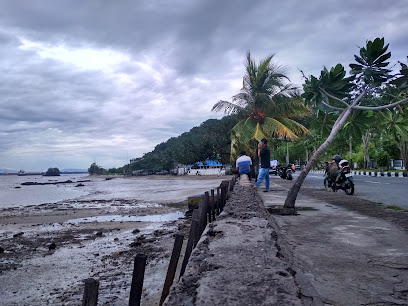
Pasar Inpres Kebun Sayur
Explore the vibrant Pasar Inpres Kebun Sayur in Balikpapan, where local produce, crafts, and delicious street food await to be discovered.
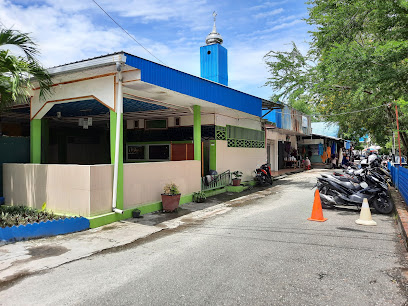
Merdeka Field
Discover the vibrant community spirit at Merdeka Field, a perfect blend of sports, nature, and local culture in Balikpapan, East Kalimantan.
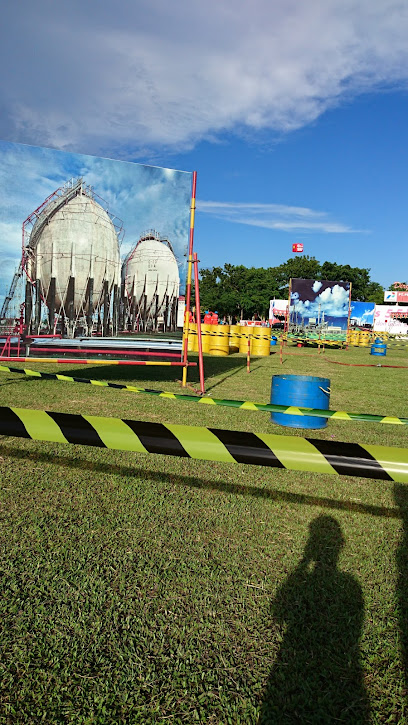
Taman Bekapai
Experience the tranquility of Taman Bekapai, a lush urban park in Balikpapan offering beautiful gardens, recreational areas, and a vibrant atmosphere for relaxation.
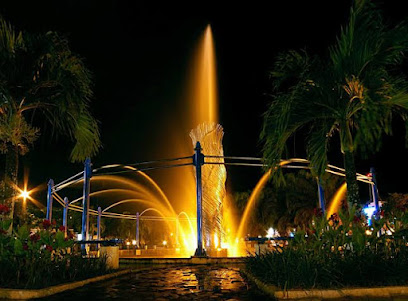
Platinum Hotel & Convention Hall Balikpapan
Discover unparalleled comfort and modern amenities at Platinum Hotel & Convention Hall, your perfect base for exploring Balikpapan and East Kalimantan.
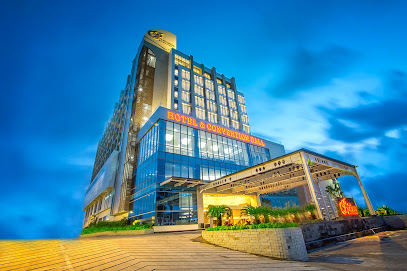
Balikpapan Islamic Center
Experience the tranquility and architectural beauty of Balikpapan Islamic Center, a significant mosque and cultural attraction in East Kalimantan.
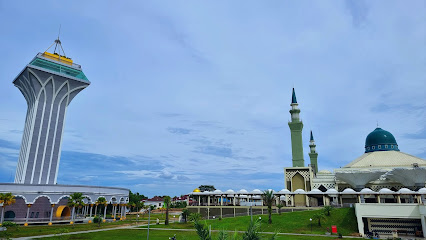
Sagalarupada' Outlet
Experience the vibrant flavors and aromas of Balikpapan at Sagalarupada' Outlet, a bustling fresh food market that immerses you in local culture.
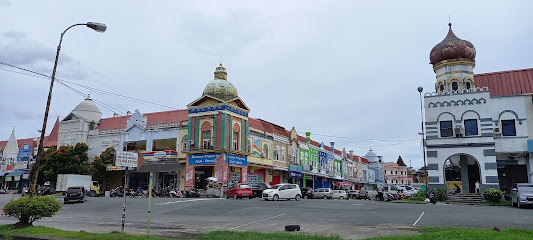
Taman Tiga Generasi Sepinggan Baru
Explore the lush landscapes and vibrant community spirit of Taman Tiga Generasi Sepinggan Baru, a tranquil city park in Balikpapan, East Kalimantan.
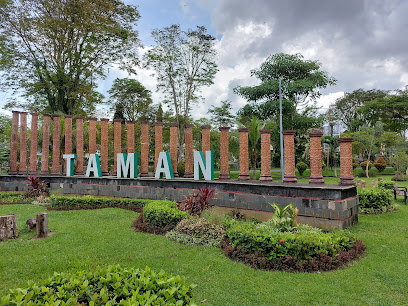
Mall Balikpapan Baru
Discover the ultimate shopping experience at Mall Balikpapan Baru, your go-to destination for fashion, dining, and entertainment in East Kalimantan.
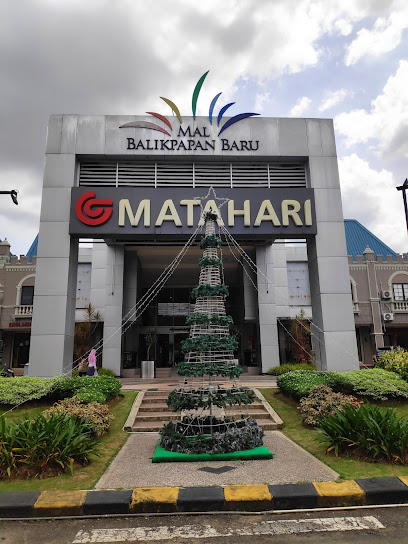
Lamaru Beach
Discover the breathtaking beauty of Lamaru Beach in East Kalimantan, where sun, sand, and local culture await every traveler.
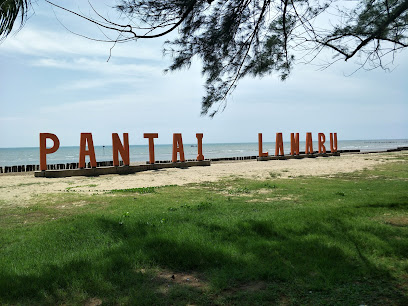
Caribbean Island Water Park
Experience the ultimate water-filled adventure at Caribbean Island Water Park, a top tourist attraction in Balikpapan, East Kalimantan.
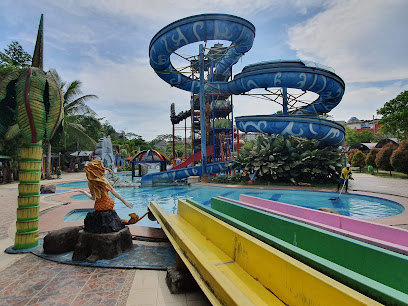
Balikpapan Ocean Square
Discover Balikpapan Ocean Square: The ultimate shopping destination in East Kalimantan with diverse retail, dining, and entertainment options for all.
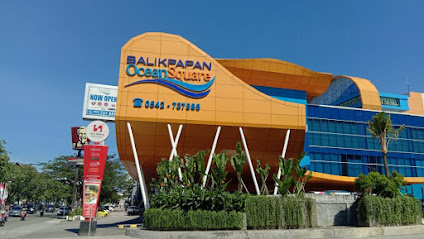
Golden Tulip Balikpapan Hotel & Suites
Experience luxury and comfort at the Golden Tulip Balikpapan Hotel & Suites, your gateway to exploring East Kalimantan's vibrant culture and stunning landscapes.
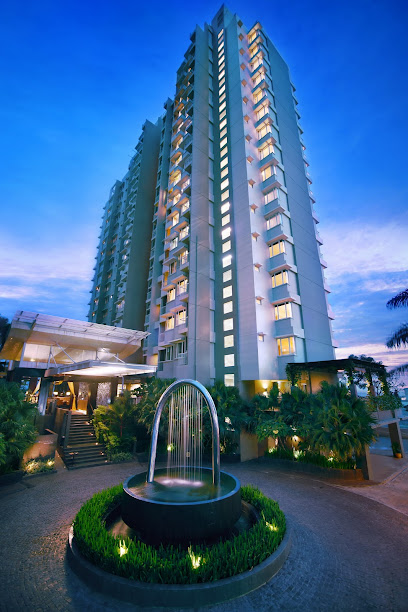
Unmissable attractions to see
Melawai Beach
Experience the breathtaking beauty of Melawai Beach in Balikpapan, where golden sands meet crystal-clear waters for an unforgettable coastal escape.
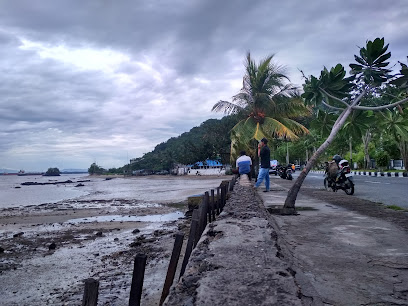
Pasar Inpres Kebun Sayur
Discover the rich culture and vibrant atmosphere of Pasar Inpres Kebun Sayur, a bustling market in Balikpapan filled with fresh produce and unique souvenirs.
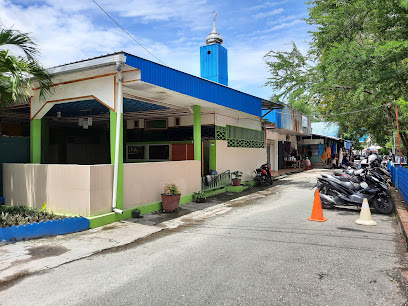
Merdeka Field
Explore Merdeka Field, a vibrant park in Balikpapan, blending recreation and community spirit amidst lush greenery and athletic facilities.
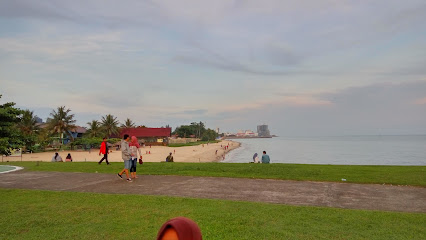
Taman Bekapai
Explore the lush tranquility of Taman Bekapai, Balikpapan's urban park perfect for picnics, strolls, and a relaxing escape into nature.
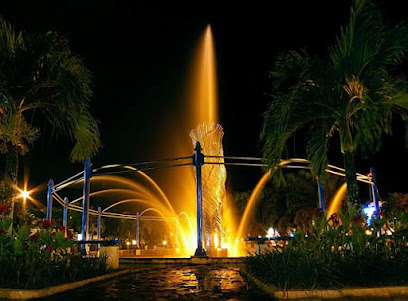
Balikpapan Islamic Center
Explore the architectural beauty and cultural significance of Balikpapan Islamic Center, a serene oasis in East Kalimantan, Indonesia.
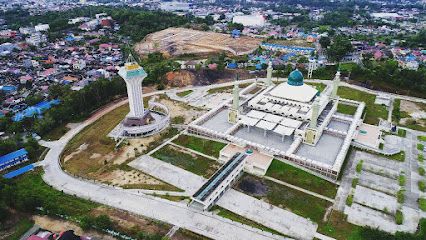
Caribbean Island Water Park
Discover endless fun and adventure at Caribbean Island Water Park, Balikpapan's premier destination for family-friendly water activities and relaxation.
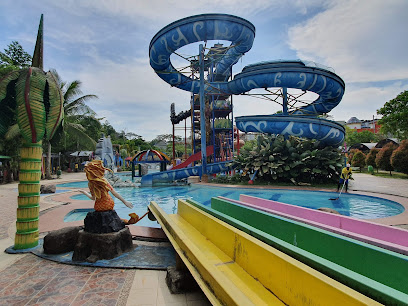
Monpera Beach
Discover the beauty and excitement of Monpera Beach in Balikpapan, where adventure meets relaxation in a stunning tropical setting.
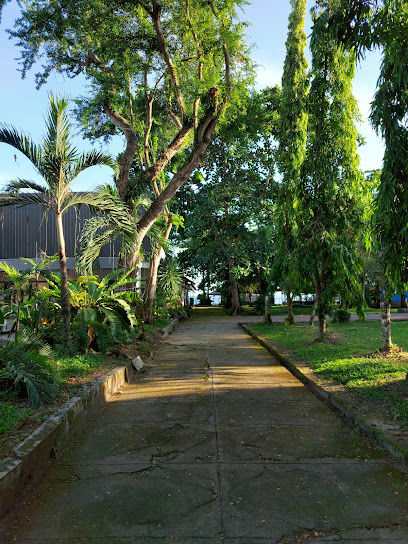
Mangrove Center Graha Indah
Discover the natural beauty and tranquility of Mangrove Center Graha Indah, a serene tourist attraction in Balikpapan, East Kalimantan.
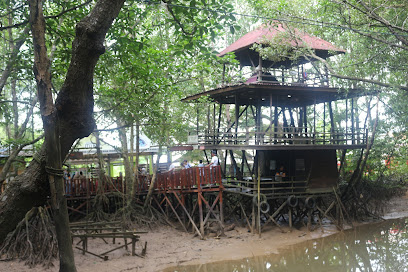
KWPLH BALIKPAPAN (Sun Bear Conservation)
Explore the heart of East Kalimantan at KWPLH Balikpapan, a dedicated sanctuary for sun bears and a hub for wildlife conservation education.
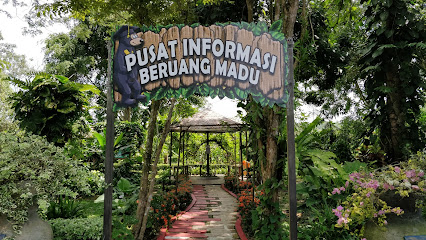
Kawasan Kampung Atas Air
Explore the enchanting Kawasan Kampung Atas Air, a water village in Balikpapan renowned for its stunning views and rich local culture.
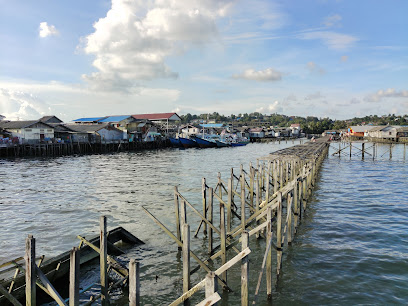
Colors Villages, Teluk Seribu Balikpapan
Explore the colorful heritage of Balikpapan at Colors Villages, a vibrant artistic hub that showcases local culture and creativity.
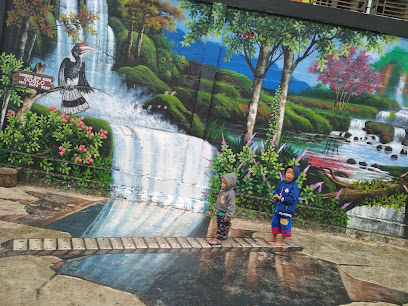
Balikpapan Botanical Garden
Discover the vibrant flora and tranquil beauty of Balikpapan Botanical Garden, an essential stop for nature lovers in East Kalimantan.
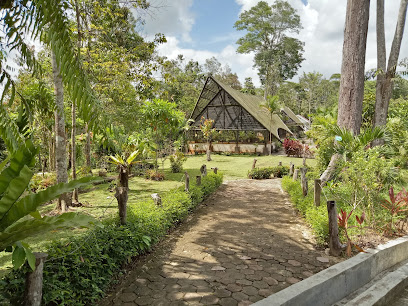
Mangrove Margo Mulyo
Explore the mesmerizing Mangrove Margo Mulyo, a national forest in Balikpapan, where nature thrives and tranquility reigns supreme.
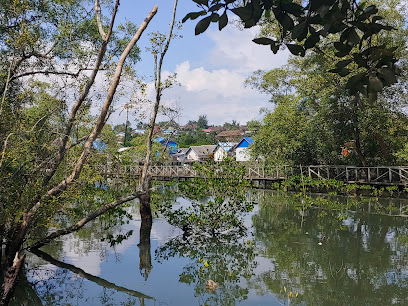
Manggar Beach
Experience the natural beauty and vibrant culture of Manggar Beach, a coastal gem in East Kalimantan perfect for relaxation and adventure.
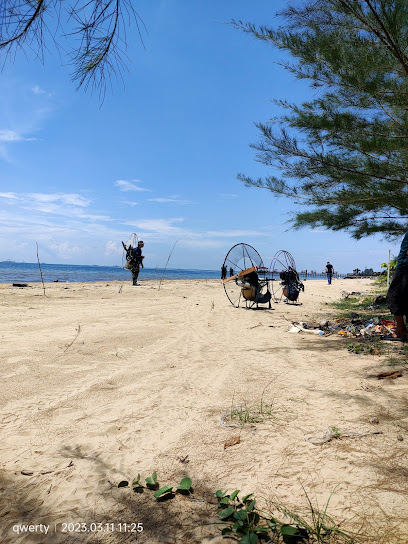
Mahavihara Buddhamanggala
Experience tranquility and cultural richness at Mahavihara Buddhamanggala, a stunning Buddhist temple in Balikpapan, East Kalimantan.
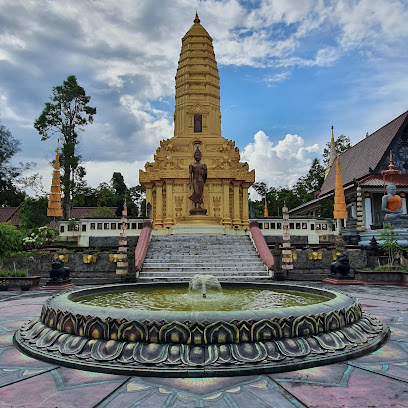
Essential places to dine
Mr. Sumo Balikpapan
Experience the authentic flavors of Indonesia at Mr. Sumo Balikpapan, where culinary excellence meets warm hospitality in a charming setting.
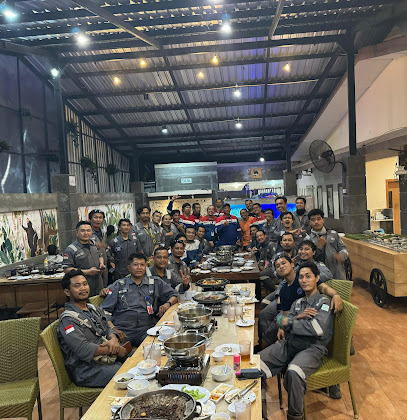
Dandito Restaurant
Experience the best seafood at Dandito Restaurant in Balikpapan – renowned for its fresh crab dishes and inviting atmosphere.
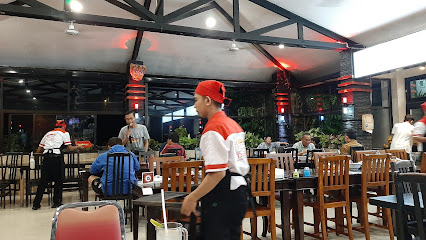
Rumah Makan Torani (Pusat) - Kepiting, Pusat Seafood & Kuliner Balikpapan
Experience the best crab dishes at Rumah Makan Torani - your ultimate seafood destination in Balikpapan.
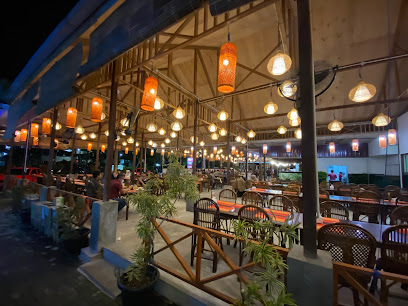
Ocean's Resto Balikpapan
Discover Ocean's Resto Balikpapan: A seafood haven offering fresh flavors and stunning views in East Kalimantan.
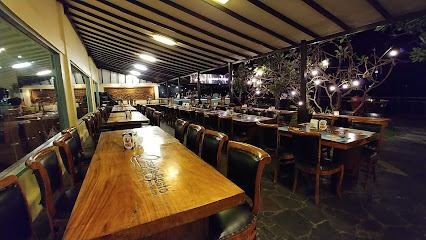
Biru Laut Restauran
Experience exquisite seafood dining at Biru Laut Restaurant in Balikpapan—where fresh flavors meet stunning sea views.
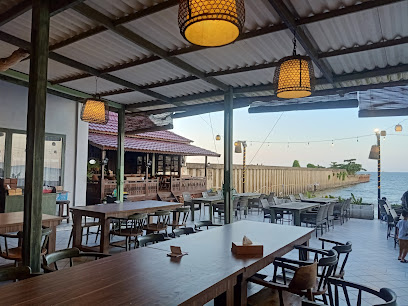
Rumah Makan Torani MT Haryono Balikpapan
Experience authentic Indonesian seafood at Rumah Makan Torani MT Haryono in Balikpapan - where every dish tells a story of local flavors.
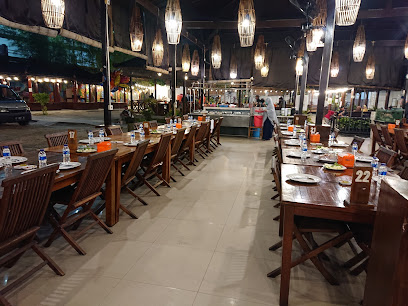
Bondy Bakery & Restaurant
Savor fresh seafood and authentic Indonesian flavors at Bondy Bakery & Restaurant in Balikpapan.
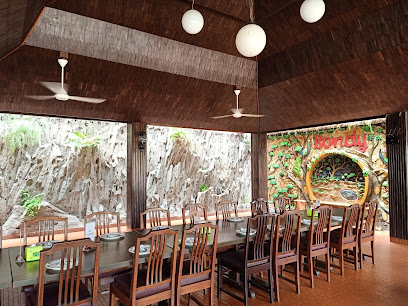
DECAFE Resto, Pastry & Bakery Balikpapan
Explore DECAFE Resto in Balikpapan - where delightful pastries meet savory dishes in a cozy atmosphere perfect for families.
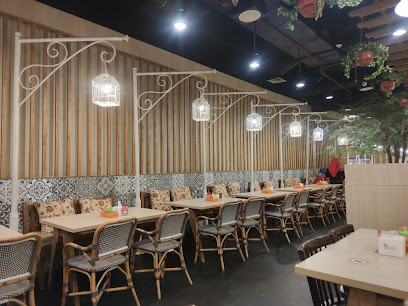
Restoran Kepiting Kenari
Discover exquisite crab dishes at Restoran Kepiting Kenari, Balikpapan's top seafood haven offering fresh flavors and vibrant atmosphere.
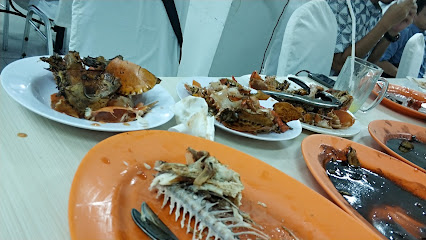
D'Penyetz & D'Cendol
Experience authentic Indonesian flavors at D'Penyetz & D'Cendol in Balikpapan – where delicious chicken meets traditional desserts.
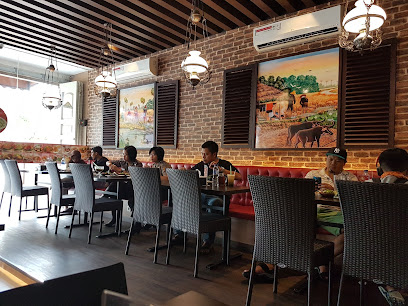
Depot Cendrawasih
Experience authentic Indonesian flavors at Depot Cendrawasih, where breakfast meets tradition in the heart of Balikpapan.
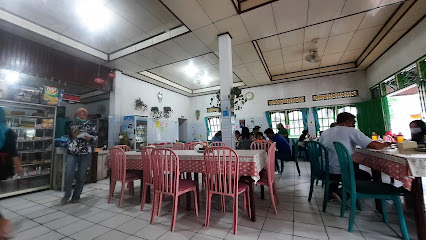
Kedai Kopi Mantaw Canton
Experience authentic Asian flavors at Kedai Kopi Mantaw Canton in Balikpapan - perfect for breakfast lovers and coffee enthusiasts alike.
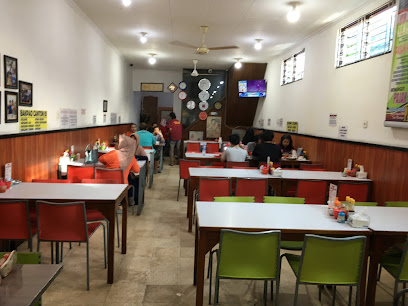
Depot Simpang Empat
Discover authentic Chinese flavors at Depot Simpang Empat in Balikpapan – where every meal is a celebration of taste.
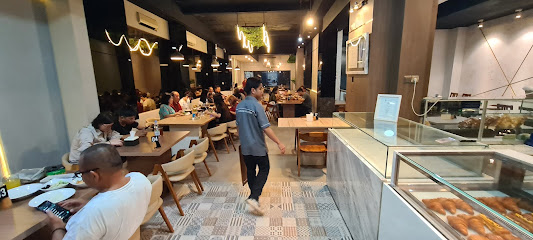
Kampung Kecil Balikpapan
Discover authentic Sundanese flavors at Kampung Kecil Balikpapan - where tradition meets taste in every dish.
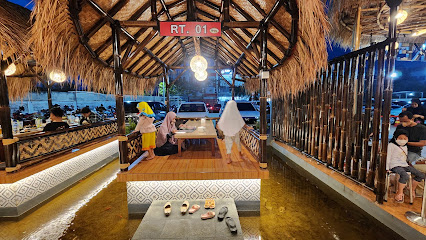
Teluk Bayur Sea Food Restaurant
Experience the flavors of East Kalimantan at Teluk Bayur Sea Food Restaurant—your destination for fresh and delicious seafood.
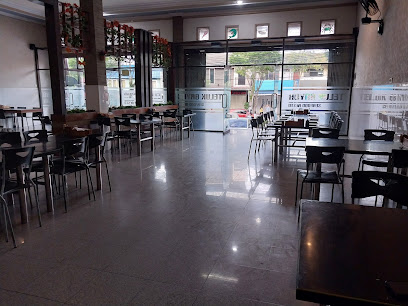
Markets, malls and hidden boutiques
eWalk
Explore eWalk in Balikpapan, where shopping meets entertainment in a vibrant atmosphere for every traveler.
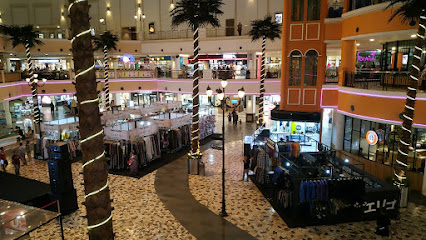
Plaza Balikpapan
Discover Plaza Balikpapan, your ultimate shopping destination in East Kalimantan, featuring top brands, delicious dining, and vibrant entertainment.
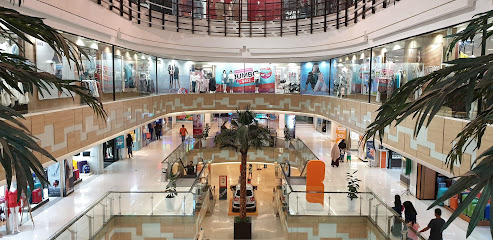
Pentacity Mall
Discover the ultimate shopping experience at Pentacity Mall, Balikpapan's top destination for retail, dining, and entertainment in a modern setting.
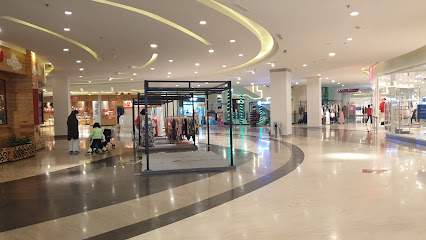
Balikpapan Superblock (BSB)
Explore Balikpapan Superblock: A vibrant shopping and entertainment hub in East Kalimantan, where modern amenities meet local culture.
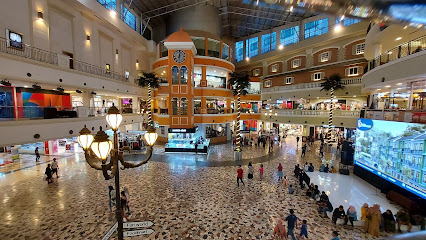
Mall Balikpapan Baru
Experience shopping, dining, and entertainment at Mall Balikpapan Baru, the ultimate destination in East Kalimantan for tourists and locals alike.
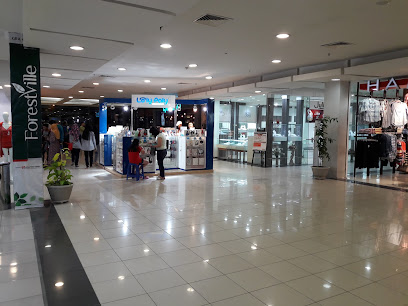
Balikpapan Ocean Square
Explore Balikpapan Ocean Square - A vibrant shopping haven in East Kalimantan offering diverse retail, dining, and entertainment experiences.
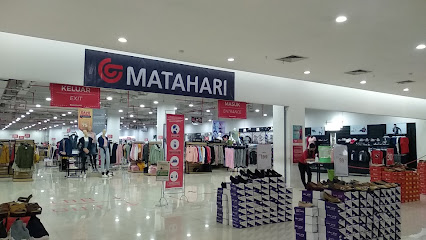
Matahari Department Store Plaza Balikpapan
Discover the vibrant shopping experience at Matahari Department Store in Balikpapan, where tradition meets modern retail.
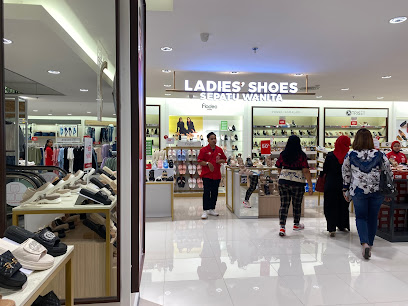
Oleh-Oleh Khas Balikpapan, Gulung Jenebora Outlet Sudirman
Explore Oleh-Oleh Khas Balikpapan, where unique souvenirs and delicious local cakes come together to create the perfect shopping experience for every traveler.
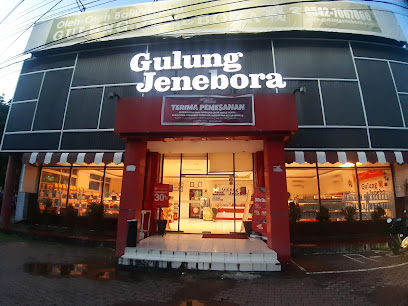
Toko Murah Balikpapan
Discover affordable fashion treasures at Toko Murah Balikpapan, where local culture meets vibrant style in East Kalimantan.
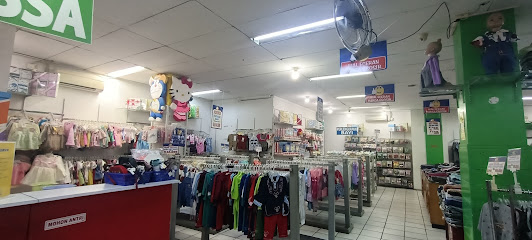
Moodzystore Balikpapan
Discover unique fashion at Moodzystore Balikpapan, where local culture meets contemporary style in a vibrant shopping experience.
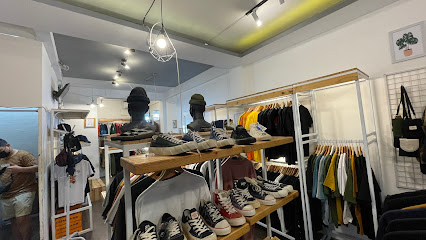
Bontings Bandara Pusat Oleh Oleh Balikpapan
Discover unique souvenirs and local delicacies at Bontings Bandara Pusat Oleh Oleh Balikpapan, your gateway to East Kalimantan's rich culture.
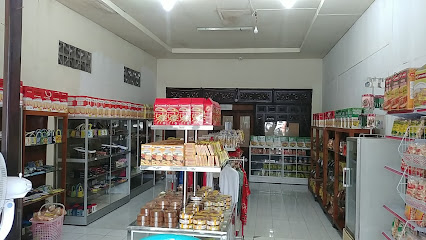
Amplang Aneka - Pusat Oleh-Oleh Khas Kaltim
Discover the rich flavors and unique souvenirs of East Kalimantan at Amplang Aneka, your go-to gift shop in Balikpapan.
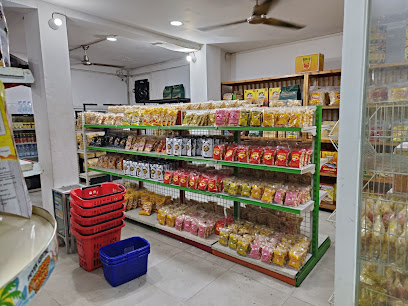
Rizhmel Balikpapan
Explore the latest fashion trends at Rizhmel Balikpapan, the ultimate clothing store in East Kalimantan for trendy apparel and unforgettable shopping experiences.
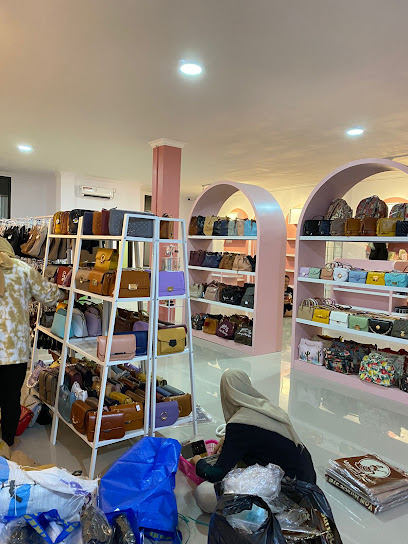
Pusat oleh oleh semala25
Explore Pusat Oleh Oleh Semala25 in Balikpapan for unique gifts and delicious baked goods that capture the spirit of East Kalimantan.
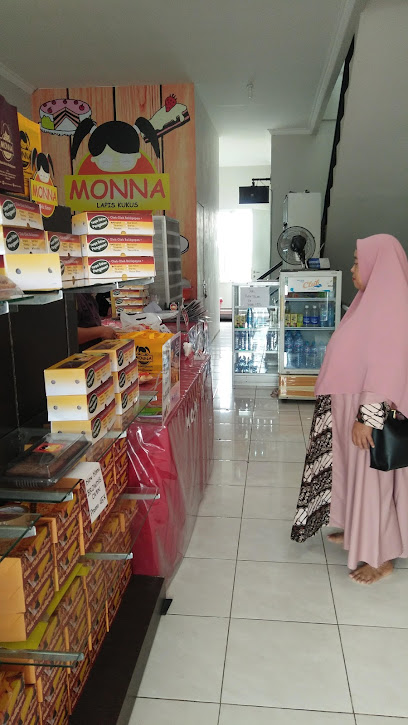
Toko Richi
Explore Toko Richi in Balikpapan for a taste of local East Kalimantan products, fresh ingredients, and unique culinary treasures.
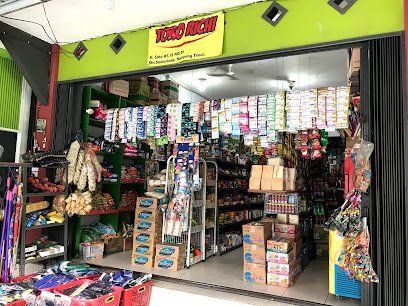
Essential bars & hidden hideouts
Seventh Street Irish Balikpapan
Discover the flavors of Balikpapan at Seventh Street Irish Grill, where every meal is a celebration of grilled perfection and local charm.
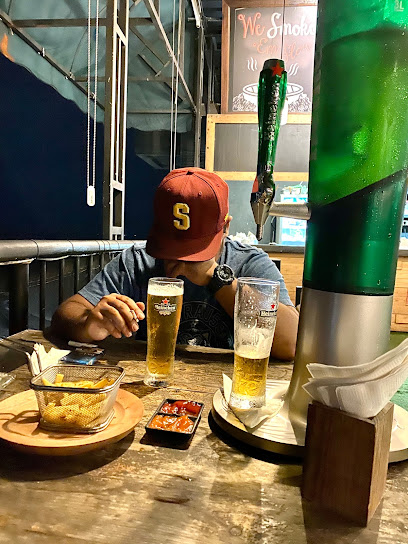
NEW J BALIKPAPAN (JAZZ CLUB)
Experience the vibrant nightlife at New J Balikpapan, the ultimate karaoke bar in East Kalimantan, where music and fun come together.
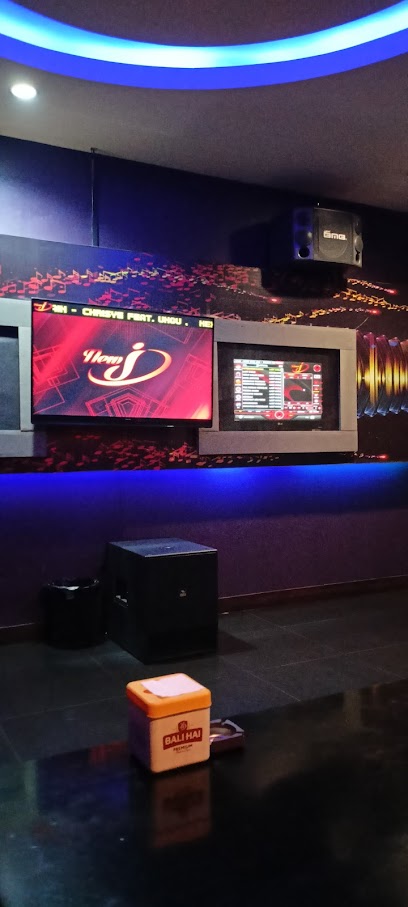
Joys Bar & Restoran
Discover Joys Bar & Restoran, a family-friendly dining gem in Balikpapan, serving a delicious mix of local and international cuisine.
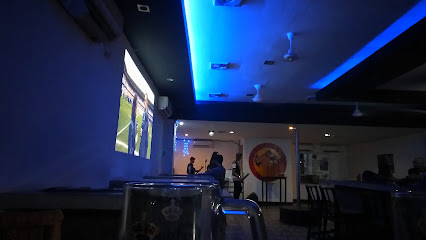
Royal Exclusive Lounge Balikpapan
Experience the vibrant nightlife of Balikpapan at Royal Exclusive Lounge, the ultimate karaoke destination for tourists and locals alike.
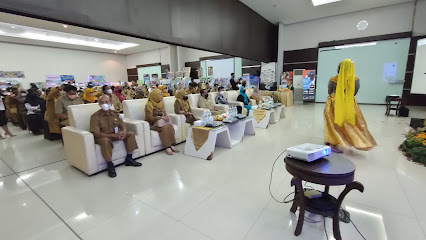
Ozon Pub & Karaoke
Experience vibrant nightlife and karaoke fun at Ozon Pub & Karaoke in Balikpapan City, your go-to spot for unforgettable musical moments.
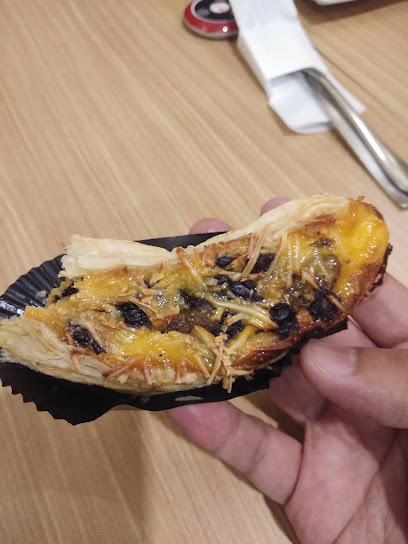
loveshack | rooftop pool & sky bar
Discover the ultimate nightlife experience at Loveshack Rooftop Pool & Sky Bar, where luxury meets breathtaking views in Balikpapan.
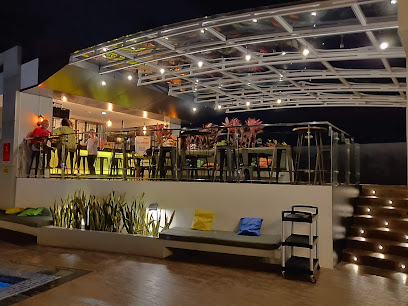
J Cuvée Lounge Balikpapan
Discover the sophisticated ambiance and exquisite cocktails at J Cuvée Lounge, Balikpapan's premier lounge destination for relaxation and indulgence.
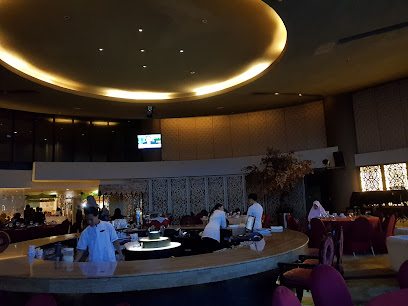
Time Out Sports Entertainment & Resto
Discover the lively ambiance and delicious cuisine at Time Out Sports Entertainment & Resto in Balikpapan, where live music meets unforgettable nightlife.
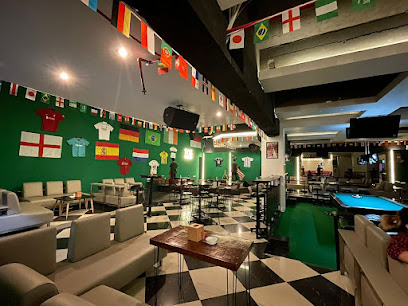
O2 Lounge
Discover the serene ambiance of O2 Lounge in Balikpapan, where relaxation meets exquisite taste in a stylish setting.
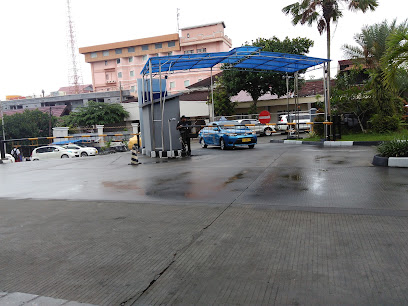
Patio Pool & Cafe
Experience the perfect blend of relaxation and excitement at Patio Pool & Cafe, Balikpapan's premier sports bar with stunning views.
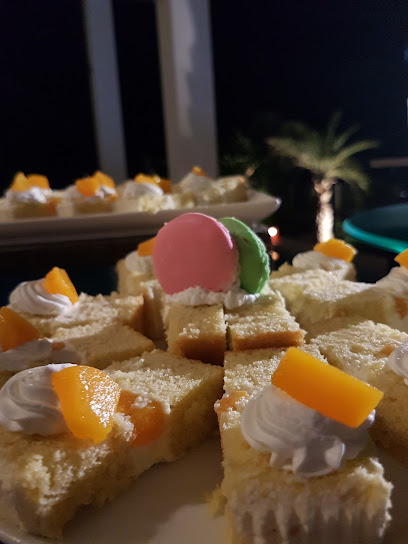
Angel Sky
Discover Balikpapan's nightlife at Angel Sky, a premier karaoke bar offering an unforgettable musical experience in a vibrant setting.
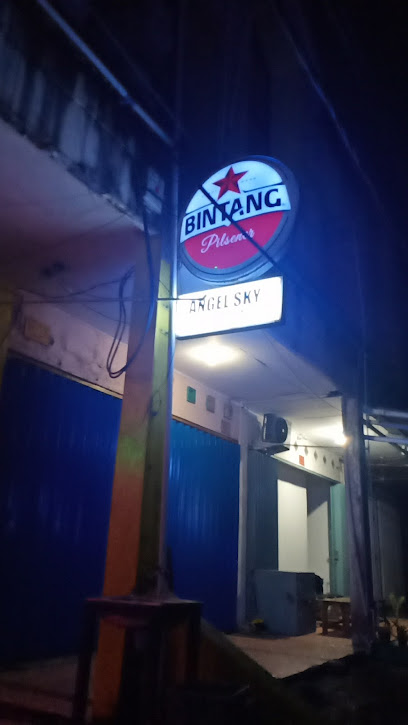
Tavern Pub
Discover the lively Tavern Pub in Balikpapan - a perfect spot for tourists to enjoy drinks, local culture, and vibrant nightlife.
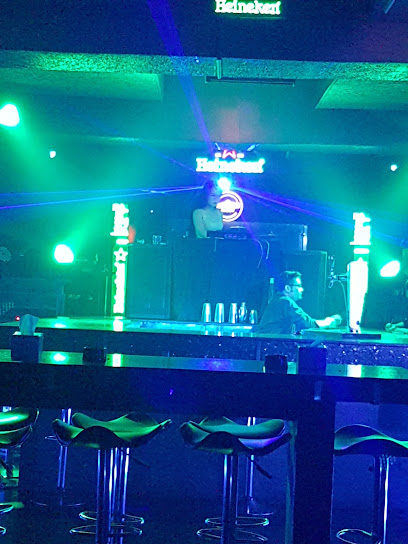
Rumah Mr Bean (Ferry)
Discover the heart of Balikpapan's nightlife at Rumah Mr Bean, a cozy bar with a warm atmosphere and a diverse drink selection.
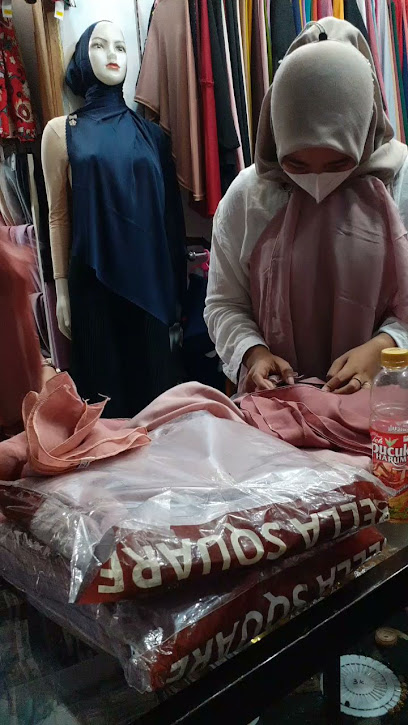
Tavern Bar and Home
Discover Tavern Bar and Home in Balikpapan - a lively bar offering a perfect blend of local spirit and vibrant nightlife.
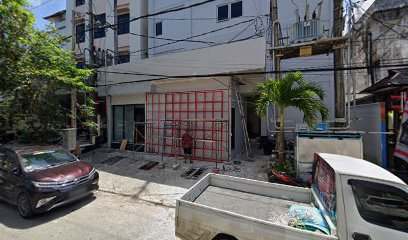
Local Phrases
-
- HelloHalo
[ha-loh] - GoodbyeSelamat tinggal
[se-la-mat ting-gal] - YesYa
[ya] - NoTidak
[tee-dak] - Please/You're welcomeSilakan
[si-la-kan] - Thank youTerima kasih
[te-ri-ma ka-sih] - Excuse me/SorryMaaf
[ma-af] - How are you?Apa kabar?
[a-pa ka-bar] - Fine. And you?Baik. Bagaimana denganmu?
[ba-ik. ba-gai-ma-na den-gan-mu] - Do you speak English?Apakah anda bisa berbicara bahasa Inggris?
[a-pa-kah an-da bi-sa ber-bi-tsa ba-ha-sa Ing-gris] - I don't understandSaya tidak mengerti
[sa-ya tee-dak men-ger-ti]
- HelloHalo
-
- I'd like to see the menu, pleaseSaya ingin melihat menu, mohon
[sa-ya in-gin me-li-hat me-nu, mo-hon] - I don't eat meatSaya tidak makan daging
[sa-ya tee-dak ma-kan da-ging] - Cheers!Selamat minum!
[se-la-mat mi-num] - I would like to pay, pleaseSaya ingin membayar, mohon
[sa-ya in-gin mem-ba-yar, mo-hon]
- I'd like to see the menu, pleaseSaya ingin melihat menu, mohon
-
- Help!Tolong!
[to-long] - Go away!Pergi!
[per-gi] - Call the Police!Panggil polisi!
[pang-gil po-li-si] - Call a doctor!Panggil dokter!
[pang-gil dok-ter] - I'm lostSaya tersesat
[sa-ya ter-se-sat] - I'm illSaya sakit
[sa-ya sa-kit]
- Help!Tolong!
-
- I'd like to buy...Saya ingin membeli...
[sa-ya in-gin mem-be-li] - I'm just lookingSaya hanya melihat-lihat
[sa-ya han-ya me-li-hat-li-hat] - How much is it?Berapa harganya?
[be-ra-pa har-ga-nya] - That's too expensiveItu terlalu mahal
[i-tu ter-la-lu ma-hal] - Can you lower the price?Bisa kurangi harganya?
[bi-sa kur-an-gi har-ga-nya]
- I'd like to buy...Saya ingin membeli...
-
- What time is it?Sekarang jam berapa?
[se-ka-rang jam be-ra-pa] - It's one o'clockPukul satu
[pu-kul sa-tu] - Half past (10)Setengah (sepuluh)
[se-ten-gah (se-pu-luh)] - MorningPagi
[pa-gi] - AfternoonSore
[so-re] - EveningMalam
[ma-lam] - YesterdayKemarin
[ke-ma-rin] - TodayHari ini
[ha-ri i-ni] - TomorrowBesok
[be-sok] - 1Satu
[sa-tu] - 2Dua
[du-a] - 3Tiga
[ti-ga] - 4Empat
[em-pat] - 5Lima
[li-ma] - 6Enam
[e-nam] - 7Tujuh
[tu-juh] - 8Delapan
[de-la-pan] - 9Sembilan
[sem-bi-lan] - 10Sepuluh
[se-pu-luh]
- What time is it?Sekarang jam berapa?
-
- Where's a/the...?Dimana ada...
[di-ma-na a-da] - What's the address?Apa alamatnya?
[a-pa a-la-mat-nya] - Can you show me (on the map)?Bisa tunjukkan saya (di peta)?
[bi-sa tun-juk-kan sa-ya (di pe-ta)] - When's the next (bus)?Kapan yang berikutnya (bis)?
[ka-pan yang be-ru-ti-nya (bis)] - A ticket (to ....)Tiket (ke ....)
[ti-ket (ke)]
- Where's a/the...?Dimana ada...
History of Balikpapan
-
Long before Balikpapan became an industrial hub, it was home to indigenous tribes such as the Kutai and the Dayak. These tribes lived in harmony with nature, relying on the lush forests and bountiful seas for their sustenance. The Kutai in particular were known to have established one of the oldest Hindu kingdoms in Indonesia, which left an indelible mark on the cultural and spiritual landscape of the region.
-
Balikpapan's modern history began with the discovery of oil in the late 19th century. In 1897, a Dutch company, Koninklijke Nederlandsche Petroleum Maatschappij, struck oil near the village of Balikpapan. This discovery transformed the quiet fishing village into a bustling town almost overnight. The oil industry attracted workers and investors from around the world, laying the foundation for the city’s economic boom.
-
During World War II, Balikpapan was a strategic target due to its valuable oil resources. In 1942, Japanese forces occupied the city, making it a crucial base for their operations. The occupation lasted until 1945, when Allied forces launched a massive assault to reclaim Balikpapan. The fierce Battle of Balikpapan was one of the last major engagements of the Pacific War, resulting in significant destruction but ultimately leading to the city's liberation.
-
After Indonesia gained independence in 1945, Balikpapan continued to thrive due to its oil reserves. The city saw significant infrastructural development, including the establishment of modern roads, schools, and hospitals. The oil industry remained the backbone of Balikpapan's economy, attracting multinational corporations and skilled labor from across the globe. This period also saw the integration of various cultures, enriching the city's social fabric.
-
In recent decades, Balikpapan has faced challenges related to environmental sustainability. The rapid industrialization led to deforestation and pollution, prompting local authorities and NGOs to initiate conservation efforts. Notable projects include the preservation of the Sungai Wain Protection Forest and the establishment of the Balikpapan Bay Conservation Area. These initiatives aim to balance economic growth with the preservation of the region's unique biodiversity.
-
Balikpapan is not only an industrial city but also a cultural hub. The city hosts various festivals that celebrate its rich heritage and diverse population. Events like the Erau Kutai Festival and the Balikpapan Fair showcase traditional dances, music, and crafts, drawing both locals and tourists. These cultural festivities provide a glimpse into the city’s vibrant traditions and serve as a testament to its multicultural identity.
-
As the global demand for oil fluctuates, Balikpapan has been working towards economic diversification. The city is investing in sectors like tourism, technology, and education to reduce its dependency on oil. The development of the Kariangau Industrial Estate and the expansion of Sultan Aji Muhammad Sulaiman Sepinggan International Airport are part of these efforts. Balikpapan aims to become a balanced, sustainable city with a robust economy and a high quality of life for its residents.
Balikpapan Essentials
-
Balikpapan is accessible via Sultan Aji Muhammad Sulaiman Sepinggan International Airport (BPN), which serves both domestic and international flights. Major airlines such as Garuda Indonesia, Lion Air, and Batik Air operate routes to Balikpapan from cities like Jakarta, Surabaya, and Singapore. From the airport, taxis and ride-hailing services are available to take you to your accommodation.
-
Within Balikpapan, public transportation options include angkot (minivans), buses, and taxis. Angkots are the most common and affordable way to get around, but they can be crowded. Taxis are more comfortable and can be hailed on the street or via ride-hailing apps like Gojek and Grab. For a more flexible option, you can rent a car or motorbike. Be aware that traffic can be heavy during peak hours.
-
The official currency in Indonesia is the Indonesian Rupiah (IDR). Credit cards are accepted in most hotels, restaurants, and larger shops, but it's advisable to carry cash for smaller establishments and markets. ATMs are widely available, including at the airport and in shopping centers. Make sure to notify your bank of your travel plans to avoid any issues with card usage.
-
Balikpapan is generally considered safe for tourists, but it's always wise to take standard precautions. Avoid walking alone at night in poorly lit areas and be cautious of your belongings in crowded places. While there are no specific high-crime areas targeting tourists, keeping an eye on your valuables and staying aware of your surroundings is recommended.
-
In case of emergency, dial 112 for immediate assistance. The local police station and medical facilities are available throughout Balikpapan. It is recommended to have travel insurance that covers medical emergencies. For minor health issues, there are pharmacies where you can purchase over-the-counter medications. Major hospitals include Siloam Hospitals Balikpapan and Pertamina Hospital Balikpapan.
-
Fashion: Do dress modestly, especially when visiting religious sites. Avoid wearing revealing clothing. Religion: Do respect local customs and traditions. Always cover your shoulders and knees when entering places of worship. Public Transport: Do be polite and allow elderly passengers to sit. Don't eat or drink on public transport. Greetings: Do greet people with a smile and a slight nod. Using 'Selamat' followed by the time of day (e.g., Selamat Pagi for good morning) is appreciated. Eating & Drinking: Do try local dishes and be open to food offerings. Don't refuse hospitality, as it is considered impolite.
-
To experience Balikpapan like a local, visit the Kebun Sayur Traditional Market for unique souvenirs and local crafts. Engage with locals; they are often friendly and willing to share stories about the city's history and culture. Don't miss the chance to visit Mangrove Center Graha Indah and take a boat tour to see the proboscis monkeys. For a unique dining experience, try the seafood at the Lamaru Beach area, where you can enjoy fresh catches right by the seaside.
Trending Landmark in Balikpapan
-
eWalk
-
Sultan Aji Muhammad Sulaiman Sepinggan International Airport
-
Melawai Beach
-
Pasar Inpres Kebun Sayur
-
Merdeka Field
-
Taman Bekapai
-
Platinum Hotel & Convention Hall Balikpapan
-
Balikpapan Islamic Center
-
Sagalarupada' Outlet
-
Taman Tiga Generasi Sepinggan Baru
-
Mall Balikpapan Baru
-
Lamaru Beach
-
Caribbean Island Water Park
-
Balikpapan Ocean Square
-
Golden Tulip Balikpapan Hotel & Suites
Nearby Cities to Balikpapan
-
Things To Do in Makassar
-
Things To Do in Bangar
-
Things To Do in Miri
-
Things To Do in Tutong
-
Things To Do in Seria
-
Things To Do in Kuala Belait
-
Things To Do in Bandar Seri Begawan
-
Things To Do in Jerudong
-
Things To Do in Muara
-
Things To Do in Kuching
-
Things To Do in Sandakan
-
Things To Do in Kota Kinabalu
-
Things To Do in Surabaya
-
Things To Do in Bali
-
Things To Do in Manado









